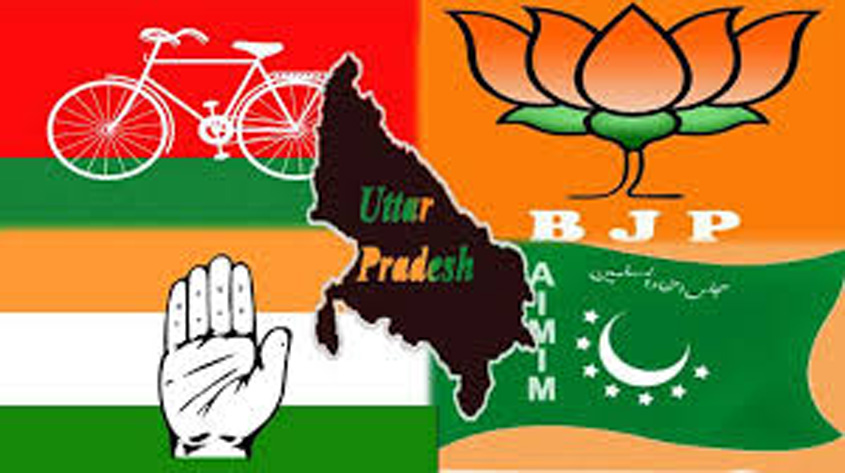Explaining the challenges, Sunit Dubey, president of the newly founded Bhartiya Yuva Party, said, “Since this is the first time we are contesting elections, we need to work on our visibility among the public. Campaigning can determine the result of elections and demonetisation has restricted us on that front. It would be unfair to say that we have suffered irreparably. Even with less currency we are managing to campaign, but we had to cut down on our targets. The donations we received could have been larger. Putting up posters or marching across town, every commodity used in campaigning needs to be paid for. We work with small local traders in the market who operate only with cash. So, demonetisation directly affects our campaigning.”
The Bhartiya Yuva Party is based in Baliya and was founded last year with the intention to promote the involvement of youth in politics. Dubey said, “Our vote bank is the youth of our state. Statistics proves that 60% of UP’s population is around 20 years old. We are raising issues that concern UP’s youth, such as large-scale unemployment and the lack of quality education. We will be contesting on 60 seats in East UP this year, with the hope of forming a strong base among youngsters in our region.”
Dubey added, “Since students and youths are our major followers, visiting university campuses, organising meetings with the public and inviting them to be part of our initiatives etc., all require a lot of travelling. Less cash in hand certainly affects our mobility.”
However, the use of social media as an effective outreach platform has increased when it comes to regional political parties. Rahul Singh, an election campaign strategist working with several political parties in UP and other states, said, “Social media has nothing to do with demonetisation, which is why it stopped being an additional platform for promotion and became a primary medium to reach the last mile public as well. Almost all the small regional parties I am working with have made WhatsApp a full-time campaigning platform, since people in small towns are not equipped with sophisticated social media platforms like Twitter or use emails etc. But WhatsApp and Facebook are largely popular.”
Speaking about the effect of demonetisation on elections, another Eastern UP first-timer, Poorvanchal People’s Party (PPP) founder Anood Pandey, said, “The loss is apparent. It might not be a large-scale setback, but for parties like us who are contesting elections for the first time, fists had to be clenched to spend our funds wisely. We had to prioritise where we need to campaign more and how much is the minimum we need to spend on every rally we organise.”
Speaking about the profile of his party, Pandey said, “PPP is contesting on 100 seats and most of the candidates are student leaders and lawyers. Our agenda is to bring prosperity back to our neglected Poorvanchal. One of our major demands has been for a separate Poorvanchal state whose economy has been neglected by successive governments.”
Singh, said: “Unlike big political parties, small parties depend on small donations from local people. Bigger parties have industrialists backing them. So, gathering funds on time is a big headache for both, but the small fish gets easily sacrificed. There has been a drastic difference in campaigning of even bigger parties. Usually by now, microphones and rallies should have become a common sight. However, only posters and electronic media advertisements are mostly being seen right now. The way I see it, demonetisation has affected campaigning, but political parties, new and old, are trying to find their way around it.”

